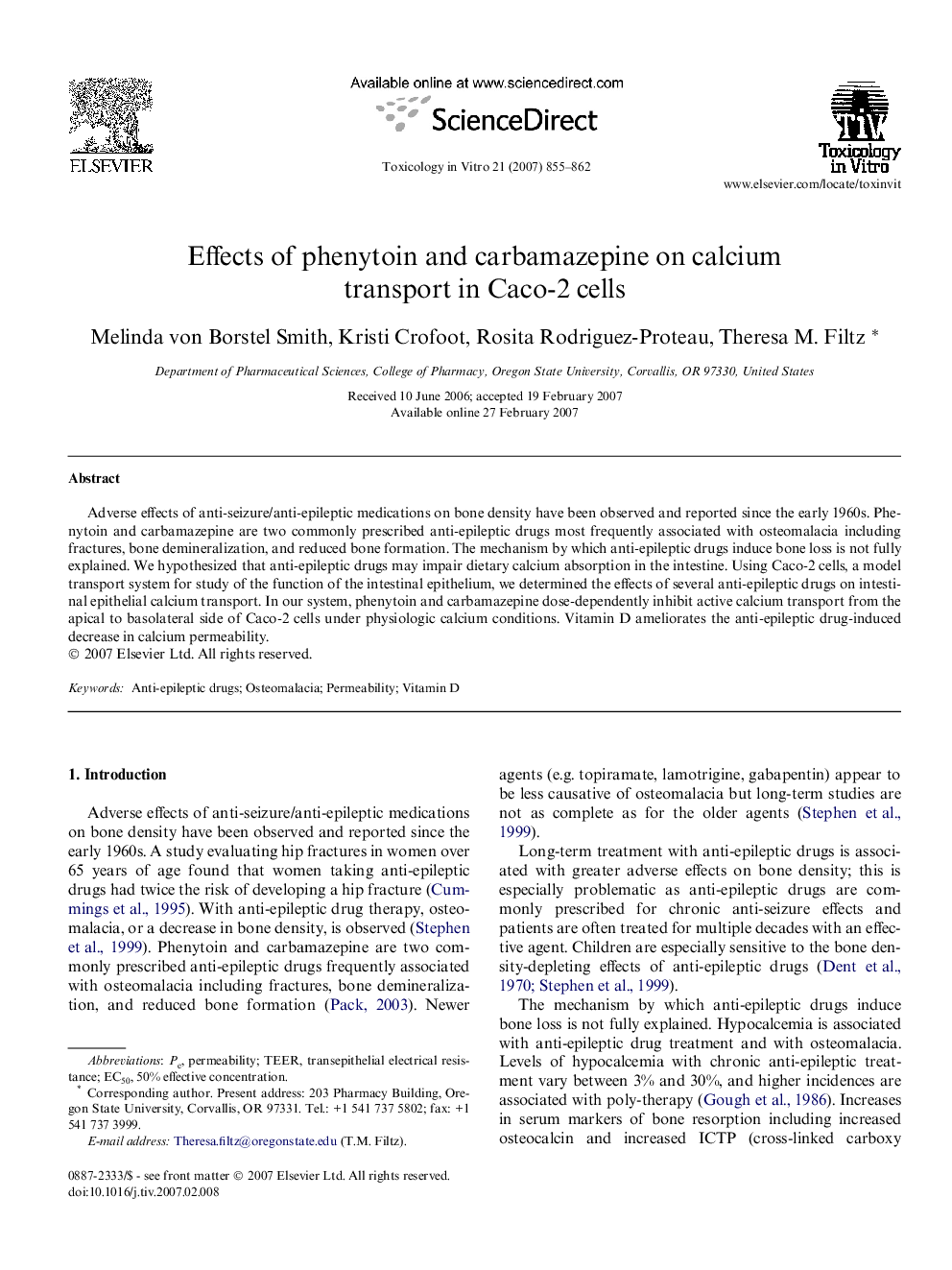| Article ID | Journal | Published Year | Pages | File Type |
|---|---|---|---|---|
| 2603162 | Toxicology in Vitro | 2007 | 8 Pages |
Adverse effects of anti-seizure/anti-epileptic medications on bone density have been observed and reported since the early 1960s. Phenytoin and carbamazepine are two commonly prescribed anti-epileptic drugs most frequently associated with osteomalacia including fractures, bone demineralization, and reduced bone formation. The mechanism by which anti-epileptic drugs induce bone loss is not fully explained. We hypothesized that anti-epileptic drugs may impair dietary calcium absorption in the intestine. Using Caco-2 cells, a model transport system for study of the function of the intestinal epithelium, we determined the effects of several anti-epileptic drugs on intestinal epithelial calcium transport. In our system, phenytoin and carbamazepine dose-dependently inhibit active calcium transport from the apical to basolateral side of Caco-2 cells under physiologic calcium conditions. Vitamin D ameliorates the anti-epileptic drug-induced decrease in calcium permeability.
